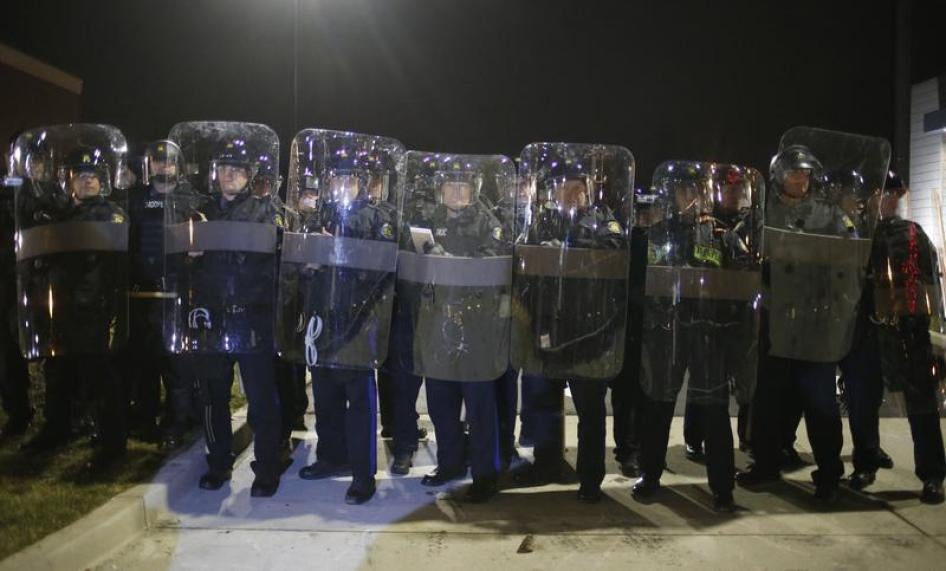“Carlos” had relapsed into a meth habit, which left him running down a suburban Los Angeles County street banging on car windows. He did not hurt anyone. Several patrol cars arrived. Officers drew their guns and ordered him to the ground. Carlos put his hands up, then slowly got face down on the ground, arms stretched out, surrendering completely.
Instead of simply handcuffing him, an officer dropped his 250 pounds on Carlos’ back. Another officer piled on, then a third. They cuffed and hog-tied him. His heart racing from exertion and meth, unable to breathe freely due to the weight on him and his constricted position, Carlos went into cardiac arrest and died. The patrol car video captured the incident from beginning to end.
The danger of causing cardiac arrest when hog-tying and applying weight on people under the influence of stimulants, like Carlos, was well known to police. Courts have held that the force used was a “clearly established” constitutional violation, given that Carlos had surrendered, leaving no justification for any use of physical force. Carlos’ family successfully sued the police department in federal court for civil rights violations, receiving damages for his pain and his family’s emotional distress and loss of a loved one. Such suits should provide a strong incentive to police departments to train their officers to handle such situations more safely.
The death of Carlos, whose name I changed to protect his family’s privacy, is one example of why the “Back the Blue Act” should not pass. Congressional sponsors promote it as “protecting” police officers. Unfortunately, the only thing it protects them from is liability when they commit unreasonable acts of violence.
The bill would expand the federal death penalty to apply to killing any police officer, though state laws already impose the harshest possible punishments for that crime. It removes certain legal protections intended make sure that death verdicts are fair. It makes any assault on a police officer a federal offense, with severe mandatory minimum sentences, preventing judges from considering the unique facts of individual cases.
The bill’s most dangerous aspect is an amendment to U.S. Code Section 1983, which allows people to hold government officials, including police, accountable through civil lawsuits when they violate constitutional rights and cause injury. Given how rare it is for prosecutors to file criminal charges against officers who use unjustified violence, civil lawsuits often remain the only way to get some measure of justice. Because U.S. Attorney General Jeff Sessions has made clear his intention to reduce or eliminate federal oversight on local police departments, these suits will be even more important in pressing police departments to provide better training and discipline for their officers.
Police officers who use force lawfully are already protected completely from liability. However, “Back the Blue” would limit liability to only out-of-pocket expenses if the victim of unjustified, unlawful police violence was doing something “related to” or “in the course of” committing a felony or “crime of violence,” which includes many misdemeanors and property crimes. Because Carlos’ breakdown was related to his possession of methamphetamine, a potential felony in California at the time, police would have been liable only for funeral expenses, though they killed him without justification as he lay helpless in their custody. And because the bill eliminates attorneys’ fees, Carlos’ family wouldn’t have been able to find a lawyer to take their case.
“Back the Blue” would allow police officers to brutally beat or even summarily execute someone who possessed drugs or stole a bicycle or spray-painted graffiti, and their departments would have to pay little, if any, civil damages. Officers would have greater incentive to exaggerate claims of criminal activity to reduce liability. Police departments would have less incentive to train in de-escalation techniques or create protocols for handling people with mental health issues.
Most police officers act ethically and perform a difficult, often dangerous, job. The law gives them considerable leeway to use force when it is needed. However, when officers use unjustified force, they should be held responsible, just like anyone else. “Back the Blue” protects them from taking responsibility when they do wrong. Congress should reject this dangerous bill.









